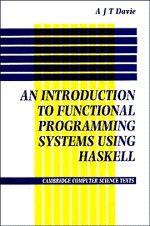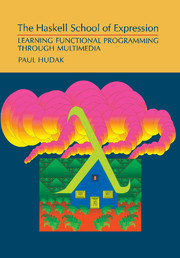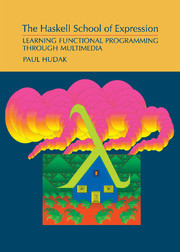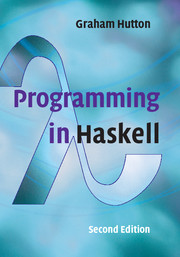Introduction to Functional Programming Systems Using Haskell
Here is an introduction to functional programming and its associated systems. A unique feature is its use of the language Haskell for teaching both the rudiments and the finer points of the functional technique. Haskell is a new, internationally agreed and accepted functional language that is designed for teaching, research and applications, that has a complete formal description, that is freely available, and that is based on ideas that have a wide consensus. Thus it encapsulates some of the main thrusts of functional programming itself, which is a style of programming designed to confront the software crisis directly. Programs written in functional languages can be built up from smaller parts, and they can also be proved correct, important when software has to be reliable. Moreover, a certain amount of parallelism can be extracted from functional languages automatically. This book serves as an introduction both to functional programming and Haskell, and will be most useful to students, teachers and researchers in either of these areas. An especially valuable feature are the chapters on programming and implementation, along with a large number of exercises.
Product details
June 1992Paperback
9780521277242
304 pages
229 × 152 × 17 mm
0.45kg
Available
Table of Contents
- 1. Introduction
- 2. Introduction to functional programs
- 3. Techniques and methods
- 4. Types
- 5. Lambda calculus
- 6. Applicative implementation
- 7. Lazy evaluation
- 8. Implementation of lazy evaluation
- 9. Correctness
- 10. Applicative program transformation
- 11. Parallel evaluation
- Bibliography
- Appendices
- Index.






